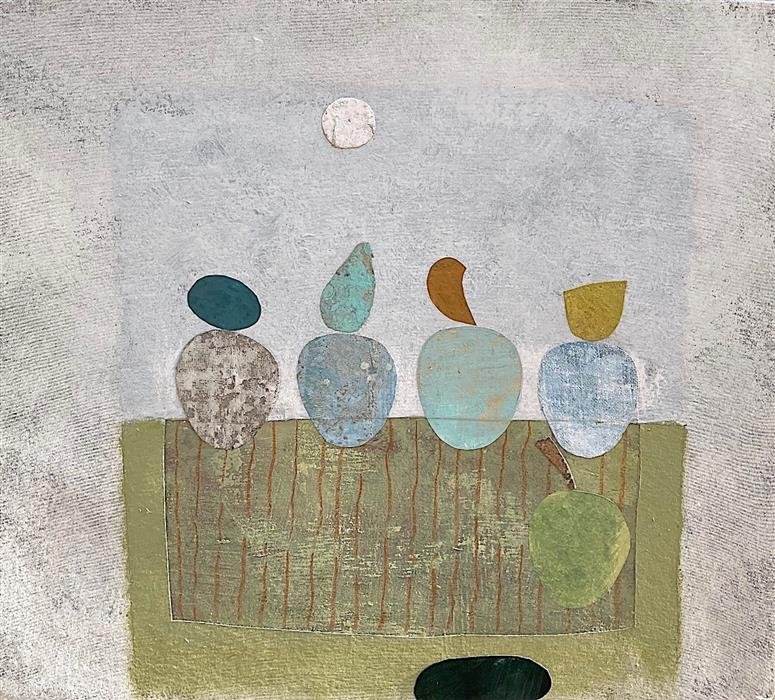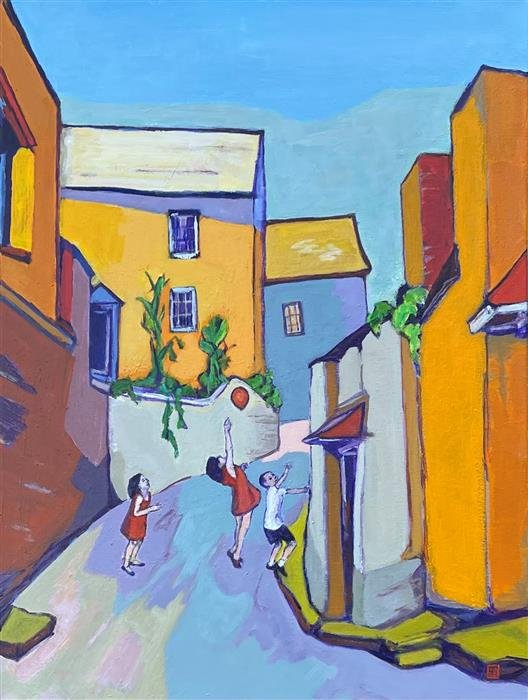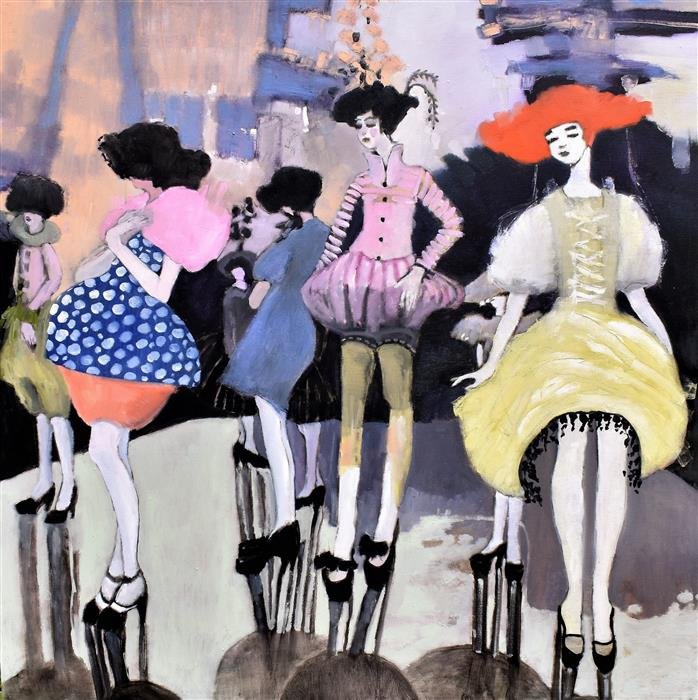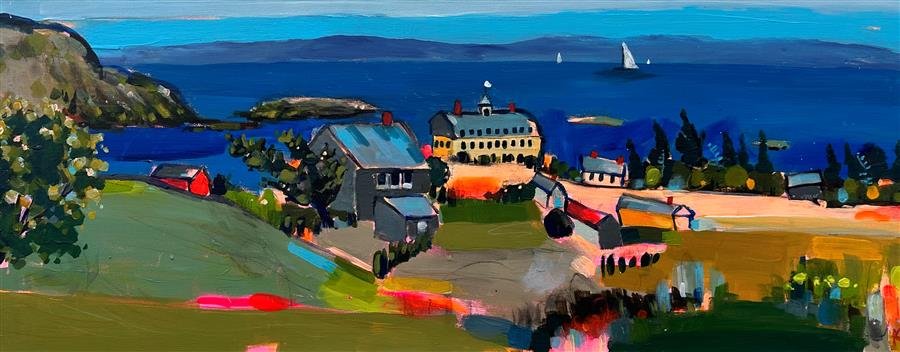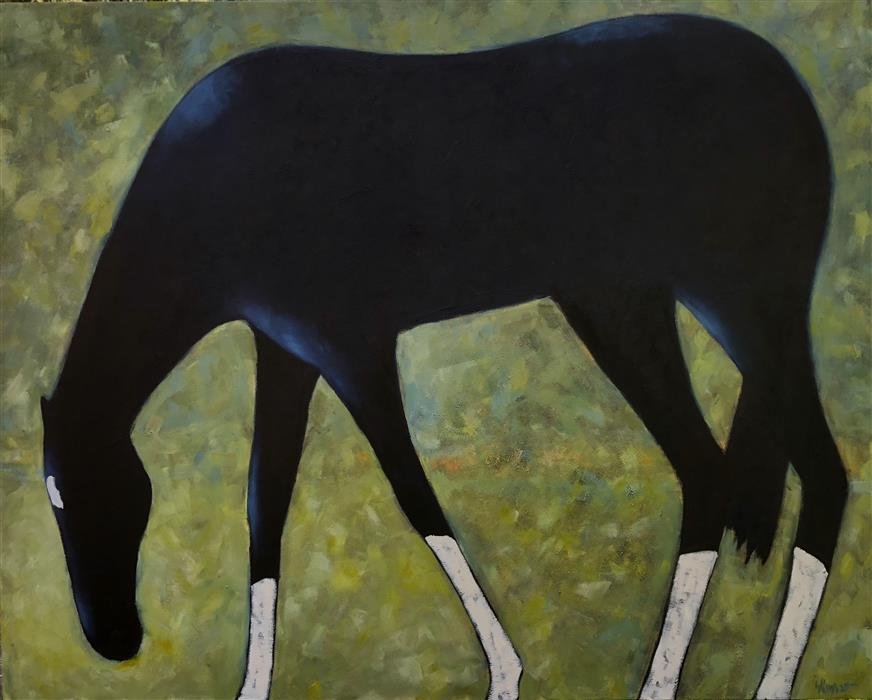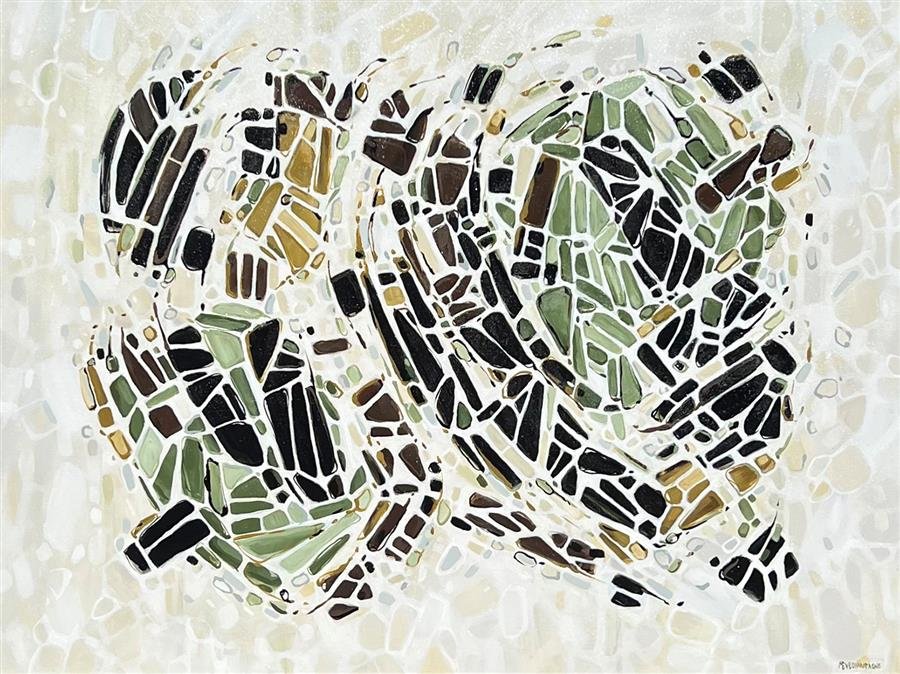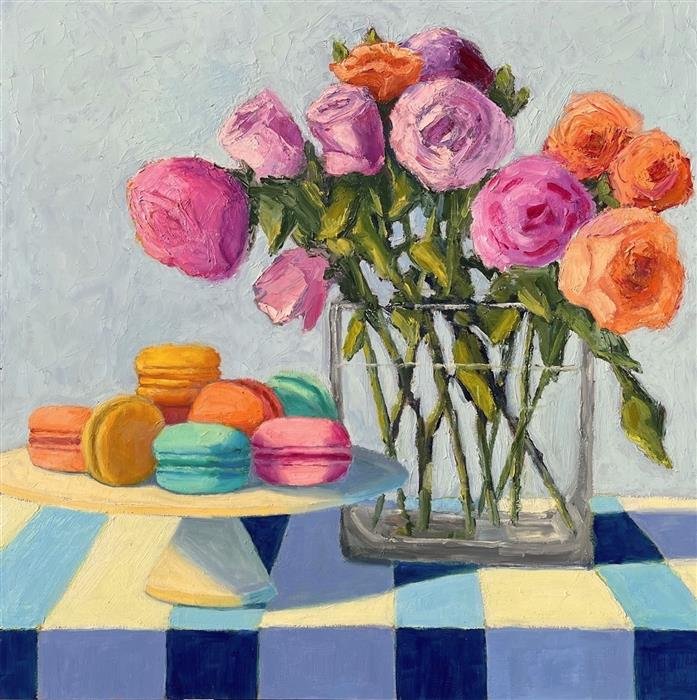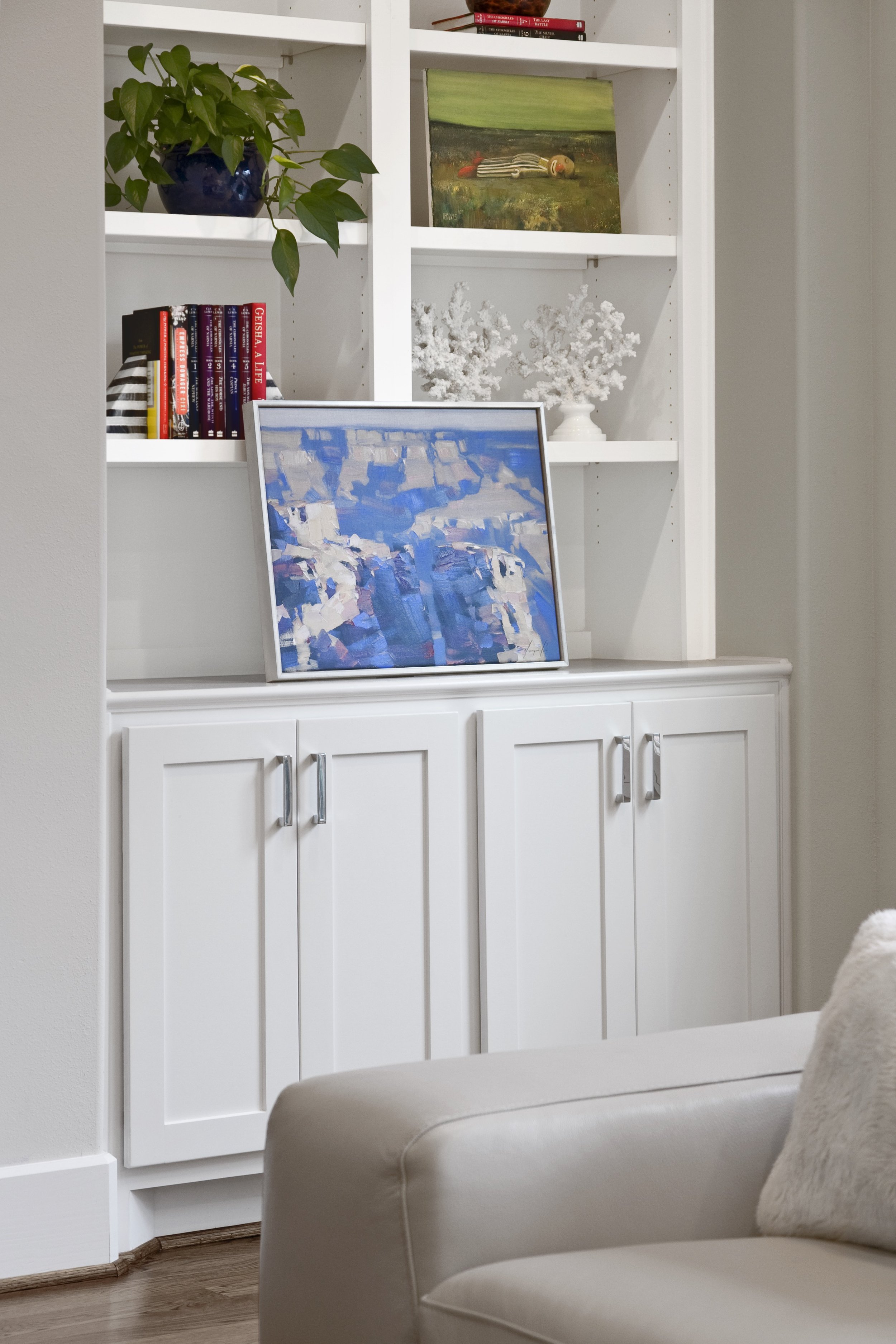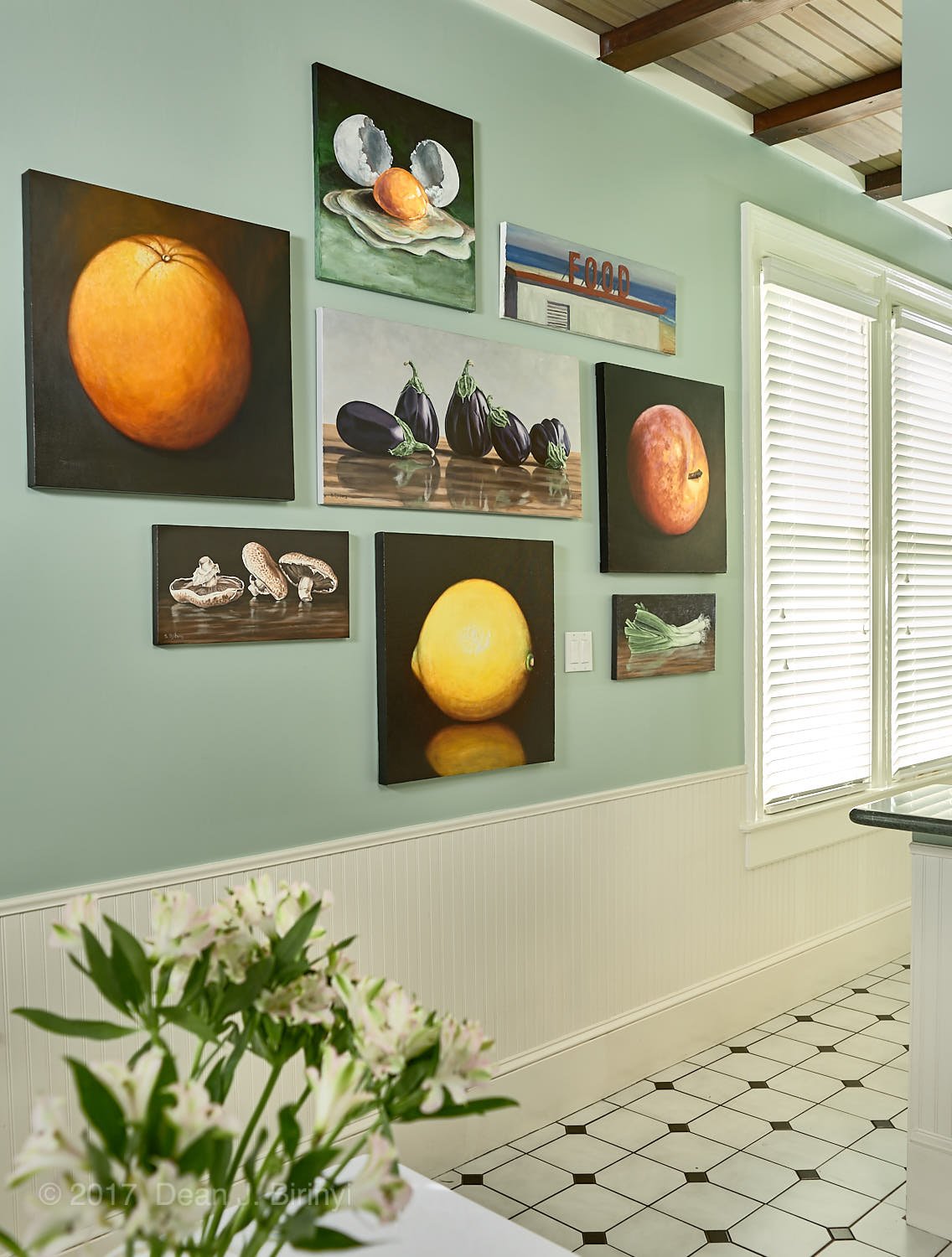Become an Art Collector without Spending a Fortune or Being an Expert with Alex Farkas of UGallery
Have you ever heard these myths about collecting art? Myth 1: Collecting art is only for the wealthy elite. Myth 2: Buying art is complicated and requires extensive knowledge. Myth 3: You need to visit galleries and auctions to find quality art. In this episode, our guest Alex Farkas will debunk these myths and reveal the truth about how the online art platform UGallery can turn you into a confident and knowledgeable art collector.
KEY TAKEAWAYS
Comprehend the invaluable impact of fostering personal relationships with artists in setting Ugallery apart.
Learn how to navigate through Ugallery, from selecting diverse art categories to narrowing down collections.
Grasp essential pointers on how to choose the right art for your living space, balancing personal aesthetics and functionality.
“Art is special. It’s one of a kind, but also your tastes are going to evolve and change. It’s important to free yourself up to think that it’s okay that you won’t have this thing forever.”
LINKS MENTIONED IN EPSIODE
https://www.ugallery.com/
PHOTOS PROVIDED BY UGallery
Artists from Top Left: David Felix, Laura Yi Zhen Chen, Mary Pratt, Rebecca Klementovich, David Shepherd, Jamie Ellsworth, Marie Eve Champagne, Pat Doherty, Vahe Yeremyan, Krzyztof Iwin
KEY MOMENTS - TIMESTAMPED
00:00:33 - Early Influence,
Alex shares how growing up in an artist community and being exposed to his mother's gallery and home furnishings business from a young age influenced his interest in art and entrepreneurship.
00:02:00 - Launching Ugallery,
Alex explains how he and his classmates came up with the idea for Ugallery, an online platform for emerging artists, and how they won several competitions to secure funding for its launch in 2006.
00:03:02 - Selling Art Online,
Alex discusses the initial skepticism about selling art online in 2006 and how Ugallery aimed to bridge the gap between the traditional gallery experience and the convenience of online shopping.
00:04:18 - Mission of Ugallery,
Alex emphasizes that Ugallery's mission has always been to support and connect artists with art enthusiasts, offering curated original art and a seamless purchasing experience with free shipping and returns.
00:14:29 - The Evolution of Ugallery,
Alex reflects on the changes in his taste and understanding of his client base since starting Ugallery at 22. He initially targeted young buyers but discovered that their main concerns were more practical, and his typical customer is older and still working.
00:16:30 - Browsing and Interacting on Ugallery,
Alex explains that users can browse Ugallery by category or explore curated collections. They offer filtering options to help users find art that matches their preferences and space requirements. The website also highlights specific artists and their works through emails and personal communication.
00:19:51 - Assessing Art for Your Home,
Alex advises considering both personality and practicality when selecting art. It's important to develop a personal taste and vision for your art style, as well as considering the physical constraints of your home. Ugallery allows customers to try the art in their space with a seven-day money-back guarantee.
00:22:47 - The Importance of Art,
Alex discusses the primal and powerful nature of art as a form of self-expression. Art defines living spaces, stimulates thought and conversation, and can have a lasting impact on our lives. He encourages people to explore art and recognizes its ability to change lives.
FULL TRANSCRIPT
00:00:00
Alex Farkas. Welcome to the Style Matters podcast. Thank you. It's great to be here. Today we're going to have a wonderful conversation about art, my absolute favorite topic.
00:00:11
And I understand you have a background not only in art history, but also in entrepreneurship. And I wonder how many art history students even think about combining those two things. So I love that you've done it. Tell us a little bit about how you came to the point of combining those two passions. Well, it starts from very early age.
00:00:33
I grew up in a little town in northern Arizona called Jerome. It was a former boomtown copper mining location in the Wild West. And then it was a ghost town. And in the 60s, it became a little artist community. My mom, she moved up there in the 70s.
00:00:50
She was a potter, and then she kind of transitioned to being a Gallerist, and she had a home furnishings business up there. So I grew up in her gallery and home furnishings store. So I was kind of in the life from a very early age into. Your bones, for sure. Yeah, exactly.
00:01:09
And I kind of resisted falling in her footsteps, taking over the family business. But then I found myself at University of Arizona as a student, and I was studying art history, and my mom was encouraging me. She said, you should really consider thinking about studying some business as well for practicality. The artist giving you practical business advice. I loved it.
00:01:32
Yeah, she's always given me sage advice about these things. And so I got into a program in the Business School for Entrepreneurship. It's a year long course, and they teach you how to come up with a business idea, how to pitch your plan, and if they like what you do, they send you to some case competition. So I got together with a couple of other students. I told them I was studying art and art history with these really talented young artists in the school.
00:02:00
And I saw this difficult transition from being a student artist to a professional artist. So we came up with the concept of an online gallery where emerging artists could launch their careers. And this was back in 2006, so it was still a very novel concept to sell online. And the school loved the idea. They helped coach us along.
00:02:22
They sent us to some case competitions. We went to the premier competition in the US. And an international one in Canada, and we happened to win both of the competitions, which had cash prizes. So we got to the end of our senior year, and one of my classmates and I decided to launch Ugallery. So we fooled our seed money from our competition earnings and also pretty much every cent in our bank account.
00:02:49
We launched you. Gallery. So that's kind of where the intersection of art and business came from. And then, like I said, it was 2006. This was before people were selling cars and food and everything else online.
00:03:02
So the first thing that happened was people started asking us, well, is anyone actually going to buy art on the Internet? And that was the beginning of our journey with You Gallery. So that's such a great question though, because I do think that on the one hand, I can totally see the challenge of selling art online, that it's one of those things where you do kind of want to see it in person when you're making that kind of investment. But then again, the same thing with shoes. How do you buy shoes unless you can try them on and yet everybody buys shoes online.
00:03:37
So at the time, 2006, that must have been a very novel idea. But clearly the way you pitched it was working and gave you the confidence to, like you said, pool all your money and your savings accounts and put all this in. You guys were young and you must have been very optimistic. So what was the mission and is it the same today?
00:04:00
My sense, and I do already know a little bit about your background, so is that there's a passion to this. It's not just like, oh, a business opportunity, I see a hole in the market kind of thing. What's the mission of you gallery. Yeah, I mean, that's a great question. I think the mission has been the same all along.
00:04:18
Maybe we've gotten better at articulating it over the years, but certainly it's always been with this notion of encouraging and helping artists get their work out there into the world and connecting them with people who are interested in accessible original art. We've always sold original art. We've always been a curated online gallery. So that's a big differentiator for us. We're not a marketplace.
00:04:42
We pick every artwork and every artist that we show. We believe that everything we show is of heirloom quality, which gives people a lot of confidence in what they do. And then it's always been about facilitating the process for people and making it really easy. So we offer free shipping and free returns on all the art we sell with a seven day guarantee. Everything comes ready to hang.
00:05:05
We send it in custom built art boxes. So the whole process is about doing a great job of articulating our artist stories and then making that connection with clients and then having a really nice experience for clients. So in many ways, it's kind of taking the old school gallery business, which I learned from my mom, and bringing it into a modern space using the Internet so that we can reach more people. We're not just one storefront on Main Street, but we can touch people around the US. And around the globe.
00:05:36
And I think that the marriage of the old school and the new school is really nice for this business. Yes, well, and I think it's kind of necessary and you kind of do have to keep up with the times, and the times are becoming digital. But you have a product that is so much about living with the non digital, right, the tangible, one of a kind creation, where you can see the imprint of a human being on this work. I mean, that is the beauty, the magic of owning a piece of art. So it's a very interesting combination to say, the process of acquiring it and mixed with the thing itself, which is sort of the opposite experience of something that's digital.
00:06:29
So I do want to ask you, like a step by step kind of walk us through, if I'm about to type in gallery.com, what's my experience going to be like? But before we do that, I just want to talk a little bit more about educating people about art and kind of getting over that hump of plonking down some money to own a piece of art. I think a lot of people, if they don't come already, kind of knowing what they want, it must be very overwhelming. Like, where do I even start with? I don't even know.
00:07:05
Do. I like impressionism. Do I like modern art. Do I like still life? People don't even know.
00:07:12
I'm sure that must be a big part of the thought process that goes into how you match people with a piece of art. Yeah, that's a great question. I definitely think that art is a passion as well as something that you use to decorate your home or your living spaces. And it certainly takes effort to get to know your personal style. And I always tell people who are getting started out, if you're just looking for your first pieces, it's really important to look at a lot of art.
00:07:45
The Internet is a great resource for that now, because you can see a lot of art in one place, but nothing beats going to galleries and museums and starting to make note of what catches your eye. We're all different in that regard, and I think anyone who has any kind of hobby knows as time goes on and you kind of refine and select a style for yourself, you get deeper into it, you start to notice more details. And so I really encourage people, before they start buying art, to spend time looking at a lot of art, because it changes, and it changes pretty quickly, too. And then also kind of committing to the fact that you should just go out there and find some things you like and live with them for a while and see how it goes. There's kind of a notion, I think, when people start buying art, that it's a forever thing.
00:08:35
We look at home decor and we say, well, we might keep this couch for ten years or this bed frame for so long, but then people look at the art and they go, but that's the forever thing. And I try and encourage people to look at it a lot like the other things in their home. Art is special. It's one of a kind, but also your tastes are going to evolve and change. And so it's important to free yourself up to think that it's okay that you won't have this thing forever.
00:09:01
And that's nice, too, because then you really can be a little bit more comfortable with starting to acquire some pieces. And I can say from my own personal experience and people we've helped pace change over time, and it's all right to kind of be a session, move things along. I have also found that sometimes those become nice gifts, too, later on to give to other young people in your life, the kids who are graduating from college, having their first apartment and things like that. Good idea. Yeah.
00:09:28
Wow. I am surprised I hadn't thought about that. So my husband and I have been collecting art for, I don't know, 25 years or so. And I have to admit, the first couple of things we bought, they're not currently hanging on our walls. We also have evolved and changed.
00:09:45
Well, first of all, I absolutely agree with you. Of course we have to evolve. We're supposed to evolve. We're supposed to continue to grow and become different people and a synthesis of all the other people we've been before, who we are today. And so you want that art to be representing different stages of your life, but also current stages.
00:10:07
And if something doesn't resonate with you anymore, I love the idea of passing it on to a young person like you said, who's just moving into an apartment because everybody goes, well, what am I supposed to hang on my walls? Nobody seems to know. Right. So that's such a lovely sentiment. And that freedom you said of, don't worry about, you're going to love it for the forever thing.
00:10:31
I mean, I understand that it may seem like a lot of money, and so therefore you have to keep it forever, but the amount of joy you're going to get out of something that you have invested your money in is so worth it, in my opinion. Right. And the joy part doesn't change no matter what you've put into it. Monetarily so I think it is important to realize that everything serves its time and purpose in your life, and it's okay if you don't own it anymore. But that said, I think once you can kind of start to feel like you have some semblance of a style, I always say, start by setting a budget you can find wonderful and well made art, really starting from a very low price point.
00:11:15
You don't need this huge barrier to get into great art. And I think that's something that I've always felt with you. Gallery and we've tried to show art across a range of prices, but I like the idea that you can get started with original art for a few hundred dollars. And then, like anything else, I think the more you get interested in something, the more esoteric your tastes become. Exactly.
00:11:40
The more refined. And then, of course, things get more expensive. It's like if you're just getting started out drinking wine, you're happy with the $10 bottle of wine. But then as time goes on, price points go up. Art is a lot like that.
00:11:54
Anything, really, that you have a hobby for. Right? I was thinking the same thing of comparing it to wine and thinking about what I used to drink in college versus now. Okay, so I want to ask you from the flip side, moving away from the consumer side for a minute. Let's talk about the artists and how do you find them?
00:12:14
What are you looking for in a piece of art in terms of is it more than just good quality? How do you do that? Yeah, that's a good question. We definitely search out a specific style. I think if you browse ugallery, you kind of get a sense of who we are too.
00:12:30
Like any gallery, galleries are driven by their gallery director, their curators, the people who pick their art. And for us, we have more or less a rubric. When we're looking for artists, we find artists in a couple of ways. We look for them online, so we do our own browsing. We visit studios and visit artists that we know and meet online.
00:12:52
And then I'd say probably most importantly, though, is the referrals that we get from the existing artists. We work with people who are happy with what we do. And I think that also speaks to having some cohesion in the collection. We receive applications, though, every week through our website, I would imagine. Yeah.
00:13:09
When we choose artists, we're looking for one. Does the artist have kind of what I describe as a signature style, something that is defined in their way of painting their material? And then is it something that they're making enough of that you can say, oh, that's John's work over there, and then from there seeing, is there a cohesive body of work that follows? Are they making things that are really identifiable as theirs and that can be across so many different things, like subject, style, that sort of thing? And then, like you pointed out, we want things that are really high quality.
00:13:47
So, as I said, we have this view that everything we present is heirloom quality. And that really comes down to artists using good materials, finishing things right. And presenting themselves professionally, that the pieces we sell are ready to hang on the wall. And then we look, generally how an artist's work fits into our overall portfolio. Does it match our aesthetic?
00:14:08
Does it complement other artists? Is it too similar from the artists we work with? And it's always changing. I find it really fascinating to go back and look and see the artists that we've worked with over the years. There are some people who started on You Gallery in 2006 who we still work with, which totally blows my mind, but then, of course, there has been an evolution of our own style.
00:14:29
And me starting out curating Ugallery when I was 22, it's a big difference to the 40 year old me now. So I can say as my tastes have changed and as I've had a better understanding of who our client is too, when I launched You Gallery, my whole thought was, this is great. It's a way for young people like myself who are just getting started in the world to decorate their home of original art. I can see that niche, right. Especially because those are the people that are used to buying things online, and you're going to have maybe an understanding of what their budgets are because you're around the same age.
00:15:05
Go ahead. But what's interesting, what I found is that's really not our client as much as I wanted it to be. People who are just graduating from college, they're more worried about buying a couch or dishes. And what we found out over time was that our customer is typically a good bit older. They are people who have grown children but are still working.
00:15:30
The joke I've heard in the art world, and I think it rings true with our businesses, art is something that you buy after your last kid graduates from college, but before you buy a sports car. And so it's kind of this evolution of what you need at the time in your life and what you have time for. For me, it's about having personal relationships with our artists, having dialogue, talking with them about what they're doing and seeing them through new series of work. So we really want to keep artists on for the long term, help them with their career. And that goes into a lot of who we show and how involved they want to be with us too.
00:16:05
We're not just a marketplace for you to casually post art. Okay, well, that's really good to hear because that's the piece, the sort of old school style of being a Gallerist that you still are holding on to that aspect of it, which I think is really wonderful. And it's really what I rely on Gallerists for is to educate me a little bit about their artists. Okay, I want you to take us through the process. I type in Ugallery.com.
00:16:30
What do I do next? We try and set up the website so there are a lot of different ways to interact with us. Really, at the most basic level, if you go to the site and you want to just start browsing, you can dive into a category. So you could search for oil paintings or you could search by landscapes, and these are pretty broad categories. So we do offer filtering so people can filter.
00:16:53
Well, I want to look at landscapes that are blue and a particular size that sometimes is helpful for people who have specific constraints or ideas in mind of what they're looking for. They want something that's going to match a particular space in their home that works for some people. We also divide the site up into collections. They kind of mimic what you'd expect with a gallery show, and we changed them out. So in the past we really got creative with them.
00:17:21
We found over time people were looking for, I would say, more practical things. So we mostly organize them now by things like art for your living room or peaceful art, energetic art that kind of gives people a sense of what might be good in these spaces. But I think that really our strength lies in the fact that we consider ourselves storytellers and it's about getting a little bit more involved in ugallery. We encourage people to sign up for our email list. We send a couple emails a week where we highlight specific artists, specific pieces and try and tell the story about that work.
00:17:58
And then in doing so, we also write artist BIOS for every artist we represent so you can learn a little bit more about their backstory and an individual write up for every piece on the website. So a lot of it is letting people kind of get into the site and start to see what they like and then we can tell them the story. But I think where we really shine is in the personal communication. Same thing. The way we work with artists, we like to be that way with our clients too.
00:18:23
So these emails I mentioned, they come from me directly. I encourage people to write me back when they want to chat about what they're looking for. We have this fantastic art advisor based in Boston and she's around to answer questions and give people guidance. And I think where we shine, like any other gallery, is being there to really tailor what we do for your, yeah, let us know what you're looking for. We do custom art as well, so clients commission work, and I think that's also another way.
00:18:54
If they're looking for something very specific, we can get down to finding an artist and coming up with a project, and that's really fun. We do a couple of projects at least a month. They range from being family and pet portraits to some very specific things. People see something in a dream that they want painted, we can bring that alive. So I think it depends on how people want to interact with our business, how much personal interaction they want to have.
00:19:22
That's what we're there for. All of that sounds incredibly helpful and there's so many layers and so many things to consider when you're trying to decide if this is the right piece for you. And you have so much information available to help people that decision. But if you were to give advice on how to best assess what a piece of art will look like or feel, let's just say feel like in your home. Do you have any thoughts about that?
00:19:51
Yeah, absolutely. Well, I think kind of talking about our conversation a minute ago, I think there's both the question of personality and practicality when picking art. So in terms of personality, art buying serves as both the decor for your home and also as kind of a statement of your personality. So yes, I really think it's important to have a vision in mind for what your art style is and developing that personal taste, whether it's starting to buy the first couple of pieces or looking at a lot of art. If you can use that lens when picking art out, I think things go a lot better and it can change over time.
00:20:28
But even kind of defining it a little bit on paper is helpful and saying, well, say I like Impressionism or I like abstraction and I like these colors and this is kind of the overall feeling I'm going for. That to me is the personality piece. Then there's the practicality piece. I have fallen in the trap over time of buying art without thinking about where it lives in my house, because especially when I was young, I would always say, well, it doesn't really matter if it's a piece I love, I'm going to find a place to put it. And to some extent that's good.
00:21:01
But also at the end of the day, our homes do have certain physical constraints and I think that the location where something is going to go is really important and you want to think about that. I think that's the most important actual practical factor is do you have a wall where you can hang this thing or a space where you can put a piece of sculpture? I like to measure out the space. So holding a tape measure up is good. Even taping out the outline of the thing in the space is really great.
00:21:30
Right. This kind of gives you this sense of, well, once I bring it home, what's it actually going to be like here? Both in terms of is it too small, too big? Does it fit? Right?
00:21:41
But then I think the most important thing is finding a gallery that you can work with that will let you try the piece in your home. It's like I was saying, we offer this seven day money back guarantee free shipping both ways. There's nothing better than actually putting the art in the space. It's good to kind of test it out, but once you hang it up, you know, and art is something that has its own kind of field of energy and life and emotion and do you connect with it once it's there? So I think that that is really important.
00:22:11
And it's not just you gallery that does that. There are other online galleries that offer that. And there are physical galleries too. That was something I learned from my mom's business. When people were unsure, she would say, Let me just bring it over.
00:22:22
Let's see how it looks. Wow. More often than not, it works really well because people do have this sense of what they're looking for. I think if you're getting to this point in your art search, most people have a notion of what they want, and so getting the opportunity to have it in your space is really important. But, yeah, I'd say mixing those personal and practical needs is important when you're searching for art.
00:22:47
Yeah. Very useful. Very helpful. Thank you. And the fact that you guys do allow somebody to I mean, you ship it and you hang it, and then, you know, ahead of time, I have the opportunity to say, no, not that you want that, but knowing that you have that chance as the buyer, it must really kind of take the pressure off.
00:23:08
So to me, that's pretty huge. Well, anyone who is on the same mission I am, which is getting people to buy more original, one of a kind art, we are of the same mind. So I really like what you're doing, and I'm hoping that this conversation encourages people to make some commitments to their walls. But I'm going to wrap up with my signature question, which is, Why does style matter? And if you want to talk about why does art matter instead, that's totally fine.
00:23:41
Yeah, that's a great question. Certainly why does art matter is a huge question and something you could study for years. But for me, I think art has always been important to me. It's incredibly primal, I think about humans have been describing the human experience with art for at least tens of thousands of years that we know of. And so it's such a powerful form of self expression, both for the artist who's making it and then, of course, for the person who's hanging it in their home.
00:24:10
And I find, for me, it really defines my living space. I was mentioning to you before we started this call, I just moved, and we're unboxing all of our furniture and putting stuff out, and the art is the last thing that will go up because that makes it easiest to find the right spaces. But I find that I'm really kind of anxious to get the art on the wall because the house doesn't feel complete without it. There's something that's really important to me about having those pieces hanging up in the house, and I think it's partly because it makes me proud of where we live, but also it really kind of stimulates thought and conversation on a daily basis. It's amazing between us, between my wife and myself, our one and a half year old, one of his first words was art, and I find that really interesting.
00:25:00
I did not encourage that or push him on that, but just noticing he paid attention to the pictures that are on the wall and then seeing anyone who comes over to our house and interacts with us, the kind of conversation that comes up from that. So art is this really powerful thing to have in our lives. And I'd say it matters because it helps define who we are as humans. It's what separates us. And of course, everyone has their thing.
00:25:28
I'm sure the same could be said about someone who's making and selling furniture or rugs or anything like that, but it gives us something special to look forward to in our life. So I encourage anyone who's considering it get deeper into it. Art really does change lives. Oh, wow. That was beautifully said, Alex.
00:25:48
Thank you so much. This has been a really great conversation. I'm so glad to have met you, and I look forward to hearing about your new adventures in your new city, which, by the way, folks, is Amsterdam. And I'm sure that that's going to be a wonderful new reservoir for you to tap into in terms of finding artists. Yes, very excited and wonderful speaking with you, too.
00:26:09
Look forward to keeping up with what you're doing and following this great business you have as well.



